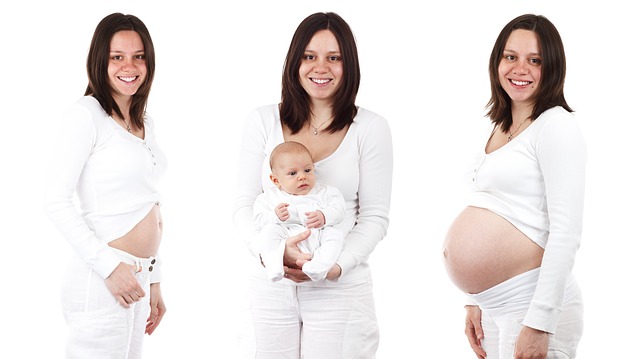
Image Source: Pixabay
Pregnancy and giving birth puts a lot of stress on our bodies. And now that the labor of love is complete and you have your precious baby in your arms, you may be wondering, “Now what?” The short answer is: here comes the fun part. But there are a few not so fun things that you should expect after giving birth. Lucky for you, we’re here to help you navigate this time in your life.
1. Breastfeeding is a Journey
Whether you decide to breastfeed or not, it is highly likely that your body will start to produce milk soon after your baby is born. When your milk comes in, it will be a sensation that will probably surprise you. When my milk came in with my first child, it felt like my chest was on fire. It didn’t last for more than a few minutes, but I was not at all ready for it. Some ladies report a tingling sensation. Nonetheless, you will need nursing pads to absorb the inevitable leakages.
If you decide to breastfeed, both you and your baby will have to get through the learning curve. It may take just a few days or a few weeks before you both settle into it. I promise, your nipples won’t feel like your baby is a piranha for too long. If you want to nurse, don’t give up. Get baby to open wide by aiming for the nose and insert as much of your areola into the mouth as you safely can. When the baby has a good latch, the mouth will resemble a fish.
2. Getting Back in Shape Takes Time
For moms into fitness, not working out or taking your usual run can be difficult. No one told you that once you deliver your baby that you would still look like you were pregnant. This may come as a total shock to you, but you will most likely look like you did when you were 5 or 6 months pregnant when you leave the hospital or birthing center. Be patient with yourself and allow your body to gradually shrink back down. Nursing is one way that you can encourage your uterus to shrink back to its normal size and burn plenty of calories, too.
You don’t have to sacrifice your fitness goals because you are a new mom. You just have to be gentle with your body until you are strong enough to get back to your regular fitness routine. If you gave birth without tearing or any other trauma downstairs, you can ease back into things more quickly. Start off with short gentle walks so you don’t overdo it. If you do, your body will let you know. Take your time before you engage your core muscles with sit-ups or planks. If you had a cesarean or an episiotomy, you will need more time before you can ease into your routine. After a C-section, you definitely want to ask your doctor when it will be safe for you to engage in regular exercise again.
3. Hormonal Changes
As your body transitions from being host mother to baby in arms mother, you will notice some significant changes. Like night sweats. Sweating is one of many ways our bodies rid us of toxins and excess pregnancy fluids. Don’t be surprised if you wake up drenched in sweat. It happens. You may also experience hot flashes, mood swings, edema and more. These hormonal changes aren’t’ made any easier by exhaustion, lack of sleep and caring for a newborn. It helps to stay hydrated and to have a support system. Mothers, grandmothers, aunts, sisters, cousins, friends, it doesn’t matter who you lean on, just make sure that you reach out to someone when you feel the need. Not only does having someone to turn reduce your risk or experiencing postpartum depression but making good use of your support system can help you get some much-needed rest and food. Of course, it’s all about the baby, but it’s just as much about you. Empty cups fill no vessels.
4. Sleep Deprivation
There’s no getting away from it. You will be sleep deprived. Folks will tell you to sleep when your baby sleeps, but this is not always practical. Your newborn sleeping may be your only chance to take a shower, brush your teeth, eat a hot meal or just breathe. This can be exacerbated if your baby is colicky and absolutely inconsolable, or if baby wants to nurse 18 hours out of the day. Newborns are exhausting, but as they get older things get easier. Try to establish a sleep-wake cycle to make things a little easier. And when all else fails, have someone help by sitting with the baby while you get some rest.
5. Postpartum Bleeding
Your doctor will tell you that you will experience postpartum bleeding for about 6 weeks after you give birth. Your uterus is working hard to close off the blood vessels that nourished your baby for all those months. But what they probably didn’t tell you is that it won’t be like your regular menses. You may pass clots the size of golf balls. Typically, the bleeding after vaginal birth is heavier than that of a C-section because your OB will clear out most of that stuff before stitching you up. Too much activity can also cause your body to bleed more heavily. Just pay attention to the little hints your body is giving you so that you can recover more quickly. Be sure to have plenty of super, overnight–the longest and most absorbent sanitary napkins, no tampons, you can find.
6. Hemorrhoids
Delivering vaginally means doing a lot of heavy pushing. The nurses will tell you to push as if you were having a bowel movement. Well doing this often results in hemorrhoids. You can use whatever ointment they offer or you can use witch hazel pads and a peri bottle. Another creative solution is to add a little water to a pad and lay it flat in the freezer. You can use these padsicles to relieve the discomfort of hemorrhoids, vaginal soreness, and episiotomies. You can even add essential oils to your padsicles if you feel comfortable doing so. Just make sure you choose carefully and have done a little research on how to best use essential oils.
7. Hair Loss
During pregnancy, your hair may have looked and felt better than ever before. It seemed to grow a lot faster and be full of luster, but now that you’re no longer pregnant, not so much. The truth is that when you’re pregnant your hair isn’t shedding like it normally would. But afterward, all that hair that didn’t shed may decide that it’s time to let go. Some women report larger losses than others but, most new moms will have some degree of hair loss. But don’t worry, it usually comes back. And don’t be surprised if you find a new hair or two where you never had hair before, like on your chin or chest. Remember those hormonal changes?
8. Lingering Contractions
Within the first couple of weeks of giving birth, you may still be having contractions. This is normal. Not only is your uterus contracting back to its normal size, but it is also contracting to close off blood vessels and to get rid of lochia or after birth. If you’re breastfeeding, you may feel these contractions more strongly while you’re nursing your baby. I won’t lie, they hurt.
9. A Weakened Core
If you had a C-section, then your core has been weakened. This surgical procedure has cut through your abdominal muscles to get to your precious little baby. You will not be able to do much lifting. You may even have a difficult time lifting your baby. Until you have a C-section, you don’t realize just how much you use your core muscles for. Allow someone else to do everything for you for at least a week. Ironing, opening doors, rolling over, navigating stairs and so much more. When you pay attention to the signs your body’s giving you, you can avoid some of the discomforts that come with C-section recovery.
10. Constipation
Iron supplements and less activity are just two postpartum norms that contribute to constipation. Although you won’t be ready for a full exercise routine, you can still be active. Take short walks when you can. If you find that you’ve been sitting a while, get up and move. Make it a point to try to move at least every hour. You may want to take a stool softener to help ease your bowel movements, especially if you sprouted some hemorrhoids, had some tearing during delivery or a C-section. Drink plenty of water–more than the standard 8 glasses a day to help keep everything flowing optimally.
Giving birth and becoming a mother is one of the most miraculous things in the world. There are so many emotions that come about and knowing that you are now responsible for this little life can be overwhelming, but it’s oh so good. The number one thing that doctors don’t tell you is that you have to be patient with yourself. Although postpartum changes happen faster than pregnancy changes, it still took about 40 weeks to get to the birth. It will take many weeks for you to find your new normal.
About The Author:
Stacey Smith is a freelance health writer. She is passionate to write about women’s health, dental health, diabetes, endocrinology and nutrition and provide in-depth features on the latest in health news for medical clinics and health magazines.




